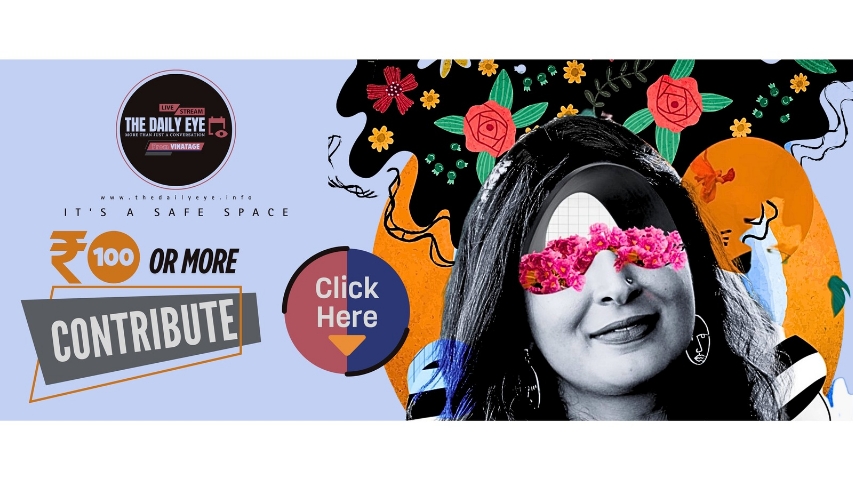
FESTIVALS: ARE THE NATIONAL AWARDS LOSING THEIR WAY?
by Monojit Lahiri August 18 2025, 10:00 pm Estimated Reading Time: 6 mins, 38 secsOnce upon a time the most glamorous, eagerly-awaited and coveted award was Filmfare founded in 1954, but today the National Awards’ credibility is under scrutiny as commercialisation drives the juggernaut forward. Monojit Lahiri investigates and reflects.
The National Awards 2024 lineup has sparked intense debate, raising concerns that the once prestigious and solemn celebration of Indian cinema is rapidly succumbing to glamour, favouritism, and the Bollywood star system. With Shah Rukh Khan winning Best Actor for Jawan and Rocky Aur Rani bagging Best Family Entertainer, critics argue that credibility, clout, and cultural gravitas are being traded for populism and mass appeal. Once the gold standard of recognising excellence in regional and art-house films, the National Film Awards now appear to be accelerating down the path of commercialisation at supersonic speed, blurring the line between integrity and entertainment spectacle.
Once upon a time the most glamorous, eagerly-awaited and coveted award was Filmfare founded in 1954. It truly defined hi-glitz event that captured the seductive magic of star-power. This was a time way before Facebook and Twitter or the who’s-sleeping-with-who brand of journalism invaded our lives. Stars were elusive and this lends them a mystique aura that is impossible to imitate. This of course, like most other things, was borrowed from Hollywood, where studios identified, created and managed the image of stars through rigid ground-rules and monitoring. Anyone who dared to step out of line (no matter how big a star) would do so at their own peril. The studios believed (with some truth) that distance lends enchantment and creates a climate of curiosity that can be converted with smart publicity into footfalls.
The National Awards: A Different Vision
The National Awards (also instituted in 1955) was an information and Broadcasting ministry event with a different agenda. The vision and values were exemplary; to identify, recognise, promote, publicise and celebrate the best of Indian cinema across all regions and states. The focus would be strictly on creativity and quality, impervious to distractions like glamour, stars, exotic locales, bloated budgets, special effects, drooling item-numbers...and whatever else the mainstream cinema of today specialises in to do their Rs 100 crore in a week films. As film critic Saibal Chalteyee says, “It’s a simple case of the Muse and Mammon offering their respective wares to the public."
Since the battle-lines were drawn and clearly demarcated there was no confusion. Also, Bollywood of the 50s and 60s fielded such luminaries as Raj Kapoor, Bimal Roy, Mehboob Khan and Guru Dutt (among others) who created material that straddled art-house and commercial fare, fusing the class-mass divide in a memorable way. At the other end of the spectrum, the towering shadow of India’s most respected film director Satyajit Ray had entered the arena followed by Mrinal Sen and gang, drawing a distinct road-map that was to be considered a template. Those were early, exciting days of the journey, exploration and discovery of Indian Cinema, an experience no true blue cineaste can ever forget. It opened up a whole new world for interesting filmmakers across the region, who boldly threw their hats into the ring, serving notice about their desire to raise their hand and be counted. Apart from the great trio of Ray-Sen-Ghatak from Bengal, Kerala had their stars too. Adoor Gopalakrishnan, Aravindan, Shaj N Karun, Girish Kasaravalli and others. The Tamil and Telegu sector were represented by the likes of K Balachander, Bharatiraja, Balu Mahendru, Ramana, Mani Ratnam. 
The Parallel Cinema Movement
In the 1970’s entered Shyam Benegal, Govind Nihalani, M.S. Sathyu preceded by Mani Kaul and Kumar Shahani. For all there filmmakers, the National Awards was a real boon for recognition and publicity of their non-commercial, low budget work, focusing on subjects and themes and starring gifted actors who were a planet away from the populist Bollywood product. Interestingly, both the cinemas had their own space and constituency and the National Awards played no small part in celebrating cinema that entertained, enriched, enlightened and empowered.
Critics point to the slow fade-out of art-house cinema in the 80s and the rise of Khan-istan (Salman, Aamir and Shah Rukh Khan) as the first signs of a dangerous movement that would be all-consuming in its unstoppable rampaging march into the public space. An entire new generation bred on new-age slogans (Humko Binnies Mangta, Yehi Hai Right Choice Baby) and doting over Maine Pyar Kiya, Qayamat Se Qayamat Tak and Kabhie Haan, Kabhie Na… defined this new consumer of movies celebrating youth power in ‘youngistan’, as never before. This, in its own way impacted the over-all LOC between the two with mainstream sweeping the polls.
The Waning of Prestige
The National Awards for its turn, despite its agenda and dedicated to battling for the cause of cinema they believed in, was losing ground. The honour and prestige remained but the clout and drawing power—once embracing the industry, media and general public—was eroding day by day. It was reduced to an annual one-off event, which came and went, without too much fanfare.
In recent years, the alarming boom of awards aired every other week on popular TV channels, sponsored by media houses seemed to have really killed the aura and attraction of the National Awards, (insist analysts) because of its ‘anti-glamour’ nature. “Who the hell today wants to hear some sarkari bozos go on and on about cinema followed by awards to vague regional films and unknown directors, actors, technicians…? Compare them to the dazzling shows, across all popular TV channels, put up by to-die-for stars in a solid, killer entertainment package."
Critics Defend the Awards
Film critics and historians however disagree and put it in perspective. “It’s wrong to compare the two. Everything considered the National Awards still remains the one award which genuinely tries to celebrate good—not most popular or successful—cinema unlike the predictable, media-house-tamashas with quid-pro-quo calling the shots”. Respected screen and TV writer Kamlesh Pandey agrees, “The National Awards, sadly, are no longer what they used to be, with the favouritism, regionalism, politics and quid-pro-quo rampant. However, compared to the scores of others they are still streets ahead. There is a definite vision and desire to reach out and recognise real talent. Sure there have been hysterical bloopers—Dabaang picking up a National Award for wholesome entertainment. But overall, the heart seems to be in the right place and the intent is on the right track. The others are not really awards that recognise real excellence, but bharpoor, masaledar star-filled entertainment packages that boost the image of Bollywood’s most popular stars along with the brand equity of media-houses, channels and advertisers translating into big bucks and bigger bang for all."
Filmmaker Leena Yadav joins the party saying, “Awards will always be a tricky business because juries will have preferences that may conflict with the right and wrong. It comes with the territory." However, Yadav believes that if the National Awards are indeed losing their ‘sex appeal’ to more seductive awards rolling out by the dozens, then it’s a great idea to get them in to hype and glamourise the show for media attention and public interest. In today’s world, Bollywood is huge, so their inclusion would be a sure-fire carrot.
This Year’s Controversial Line-Up
At the end of the day, it really boils down to who you are, what you are looking for and what’s your idea of good cinema. This year’s National Awards for example, has spun out a googly. Best actor for SRK for Jawan! Jawan?? Not Chak De, Swades, My name is Khan? Shared with Vikrant Massey for 12th Fail? Smart balancing act. Rocky aur Rani as best family entertainer? Gowariker and gang have really lost it but in these times of sab Golmaal hai, grin and bear it, bro!





-173X130.jpg)


-173X130.jpg)

-173X130.jpg)
-173X130.jpg)
